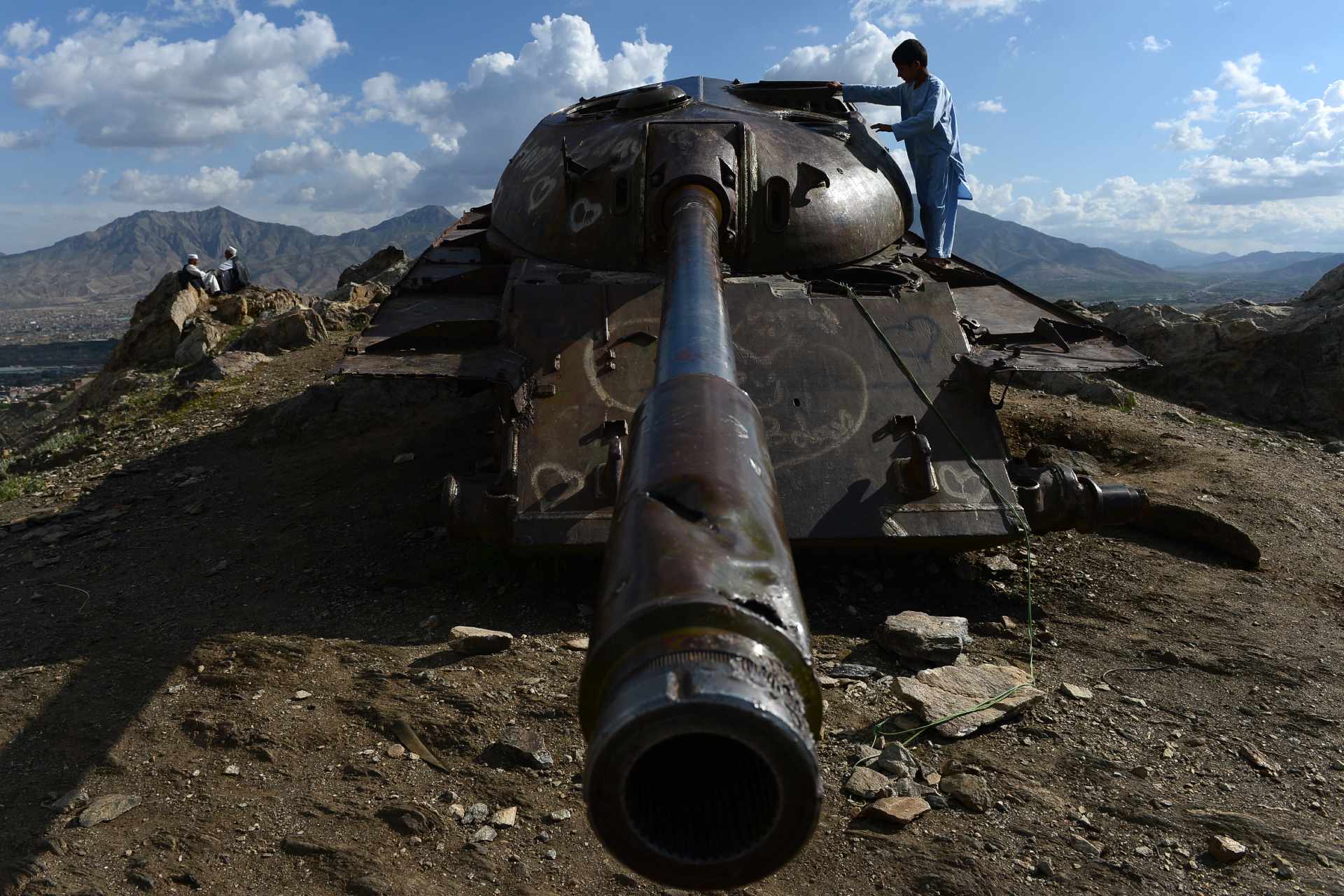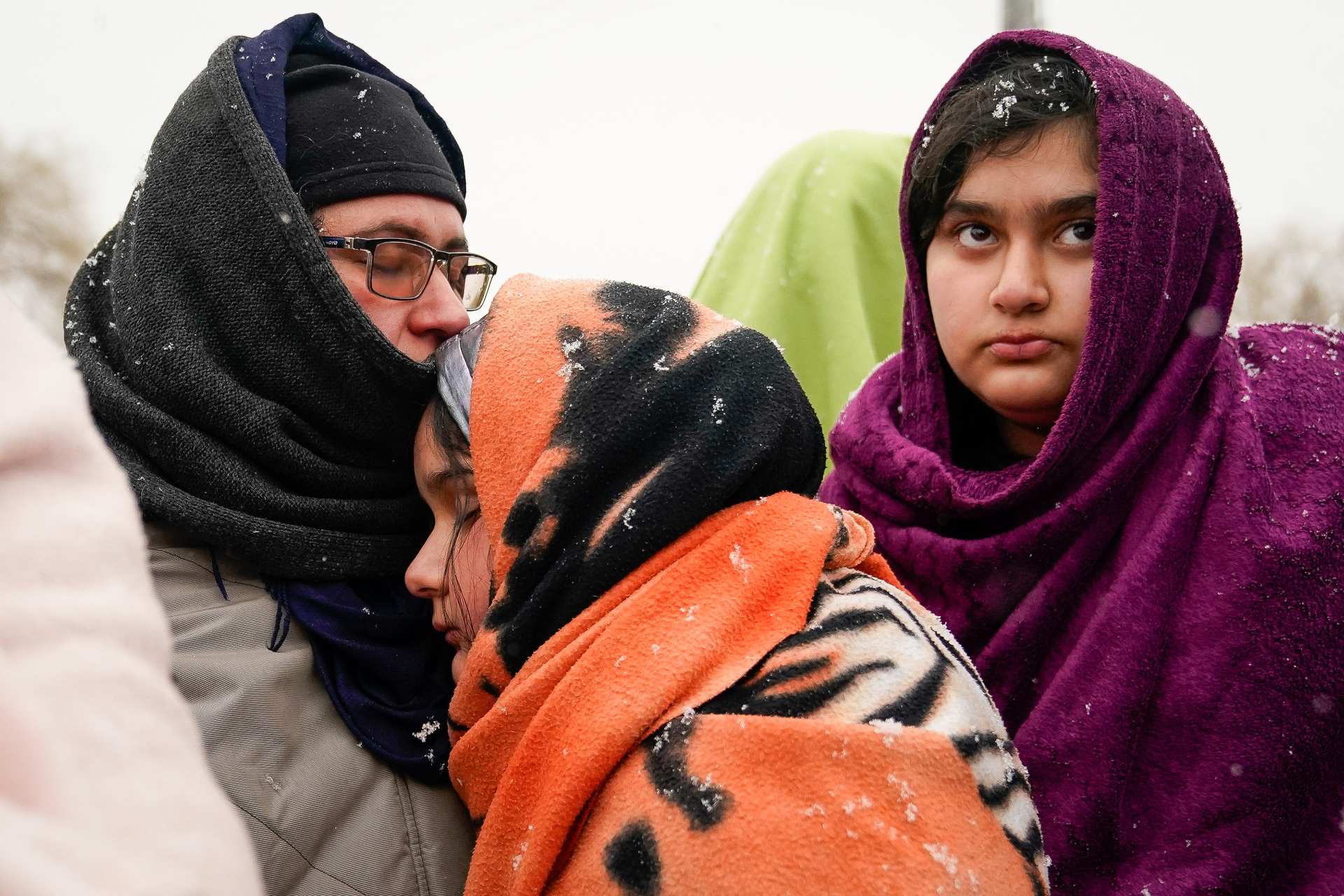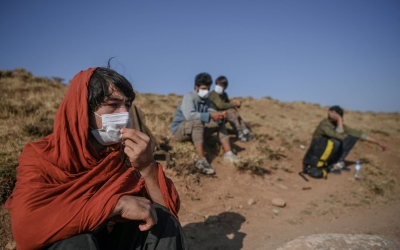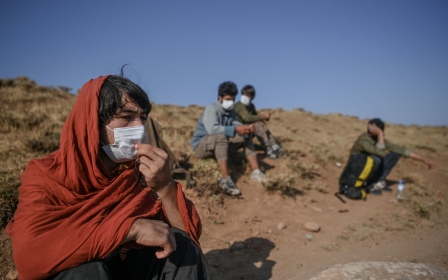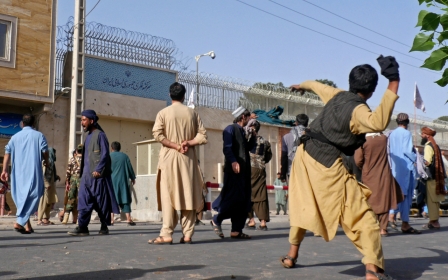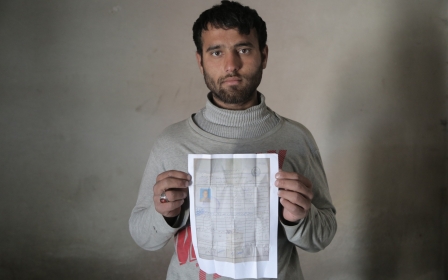Russia-Ukraine war: Meet the Afghan refugees fighting Moscow's latest invasion
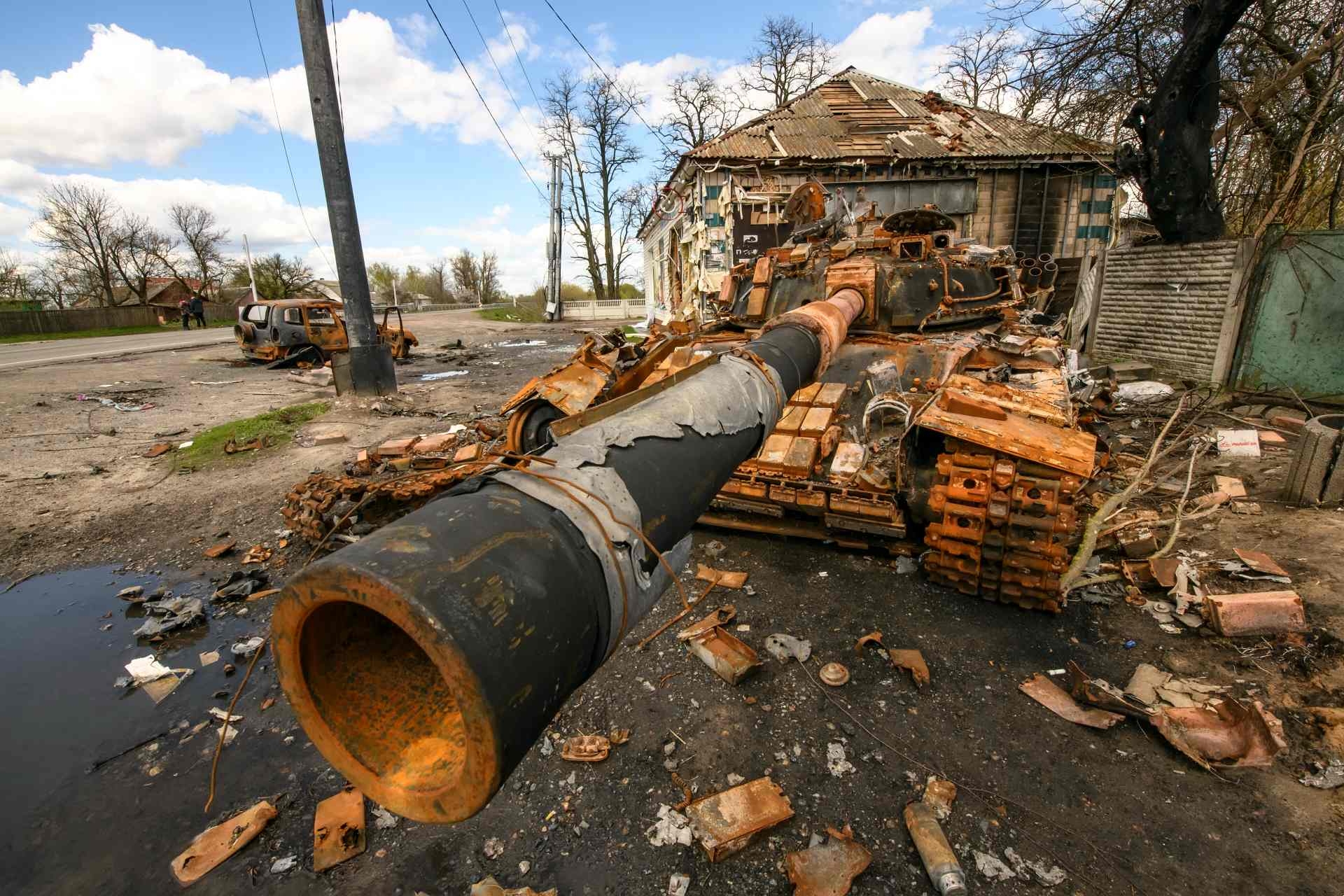
Mateen learned many skills in the 10 years he spent fighting the Taliban as part of the Afghan National Army, but he never imagined he’d have to put that same experience to use in a foreign country.
He also never imagined that he would one day find himself fighting an invasion by Russia, just as the men of his own family had done in his homeland in the 80s before he was even born. But that’s exactly where he’s found himself, in Ukraine, fending off Russian forces while waiting for news on his much-delayed resettlement case.
Like millions of other Afghans, the fall of the western-backed government in Kabul has led the 34-year-old on a confusing and difficult journey full of anticipation and unanswered questions.
'I understand what the Ukrainians are going through right now. They are caught in the middle of conflicts between countries much bigger than theirs, just like Afghanistan'
- Mateen, Afghan volunteer fighter
Now he is part of a small cadre of Afghans who have been recruited to take part in the Ukrainian war, a conflict that has overshadowed the situation in Afghanistan, which is still afflicted by instability and economic collapse.
There are currently an estimated 20,000 foreign fighters in the country, most of whom come from the UK, the US, Georgia and Belarus.
New MEE newsletter: Jerusalem Dispatch
Sign up to get the latest insights and analysis on Israel-Palestine, alongside Turkey Unpacked and other MEE newsletters
Unlike them, Mateen was already in Ukraine, where he had been resettled as part of the evacuation of vulnerable Afghans that went into overdrive after the Taliban takeover on 15 August 2021.
When Russia launched its invasion on 24 February, Mateen had already been in Ukraine for six months. He was hoping to be sent to the US or the UK.
As someone who since 2012 had fought in the Afghan provinces of Herat, Balkh, Maidan Wardak and Ghazni, he had plenty of interaction with Italian, German, British and US forces. This made him a primary target for the Taliban, but like countless other evacuated Afghans, Mateen has been made to sit and wait in a foreign country.
“I kept asking them about the status of my case and they just kept saying to wait, nothing else,” Mateen told Middle East Eye over the phone from Kyiv. He says the entire resettlement process is at a standstill in Ukraine.
“Everything is closed here. The UN immigration offices and embassies are not responding to emails, and if they do, it’s always the same thing: 'Wait until further notice, our office will contact you'."
The onset of the invasion has of course played a role in those delays, but Ukraine is hardly the only country where Afghans say they have been forced to endure interminable waits. In February, thousands of Afghans in Abu Dhabi protested against being made to wait indefinitely in a facility they called a “prison”, with no word on when they would reach their final destination.
By March, the efforts to recruit volunteer fighters accelerated and Mateen decided it was better to return to the battlefield against a decades-old foe than to simply sit around and wait.
Mateen, who would only provide his first name, said he was recruited by another Afghan who had been in Ukraine since 2003. He said another friend who spoke the language, helped him through the registration process.
He says because hundreds of people lined up at registration centres established in different communities across the capital, the process was rather simple: “They check your documents and if you don’t have a weapon, they provide it to you before introducing you to your unit commander. Those who have guns of their own had to register them."
Mateen would not disclose if he was being paid to fight, but he did say the leader of his unit is a member of the Ukrainian armed forces. The Afghan said he was compelled to fight the Russians from the start.
“I understand what the Ukrainians are going through right now," he said. "They are caught in the middle of conflicts between countries much bigger than theirs, just like Afghanistan."
'I saw the destruction'
One Afghan who really sees the parallels between the Afghanistan and Ukraine wars with Moscow is Jalal Noori, who came to Ukraine as a teenager during the Soviet occupation of Afghanistan.
Since then, Noori has married a Ukrainian woman, become a father to a now 20-year-old daughter and run a security company for 18 years.
He says the current situation in Ukraine reminds him of living in Soviet-occupied Afghanistan.
'I saw the destruction, the fire, the blood, and the mass migration. Once again, I lost a home, a business, friends, and my family become refugees themselves'
- Jalal Noori, Afghan fighter
“More than three million Afghans like me were forced to become refugees. At least one million more died. Our country is still suffering to this day because of the Soviet invasion," he said.
Noori says he was determined to keep Ukraine from suffering the same fate as Afghanistan and so in 2014 he joined in the fight to defend Crimea, which Russia illegally annexed.
When war broke out again in the winter, Noori began recruiting other Ukrainian civilians to take on the Russians.
“I saw the destruction, the fire, the blood, and the mass migration. Once again, I lost a home, a business, friends, and my family became refugees themselves," he said.
Mateen came to Ukraine to flee years of fighting in his country, including the Soviet occupation, which forced his family to flee their native Kunduz province for Kabul in the 80s, but has instead found himself surrounded by war.
“I fought for years to free my own country, then after all those years, we lost our country. I came here to have a better life, but again, war has followed me. It will never end."
'We fought until we had a state'
Still, being back out on the fight has provided Mateen with a much-needed sense of familiarity and camaraderie. “It reminds me of my brothers in the Afghan Army. We were unified and fought bravely against terrorists, even though we often didn’t have food or even a place to sleep,” he said.
As someone who saw that devotion firsthand, Mateen says he has been deeply disappointed by how the international media has tried to compare Afghan soldiers to Ukrainian ones, especially the implication that the Afghans were inept or disloyal to their cause.
“It hurts to hear. Thousands of my brothers were martyred over the past 20 years, we fought until we had a state.”
But he does agree with one criticism of the Afghan war, that Ashraf Ghani, the former president of the western-backed government, abandoned his nation when the Taliban were heading towards the city of Kabul.
By contrast, Mateen says Ukraine has both the support of its leader, President Volodymyr Zelensky, and the international community.
Rahmatullah, a former member of one of Afghanistan’s most elite commando forces, who is currently living in Iran, agrees.
Looking at the two leaders, Ghani an academic who spent decades in the US, and Zelensky, a charismatic actor turned politician, the 35-year-old says he is disappointed by how Ghani left his country while Zelensky reportedly turned down Washington’s offer to help him flee the Russian advance.
“He ran away like a coward. He abandoned all Afghans, but Zelensky continues to resist like a lion and now he’s become a hero to the whole world," said Rahmatullah.
For Rahmatullah, the collapse of the western-backed Kabul government is especially personal. In 2018, his 27-year-old brother died in the northern province of Kunduz, where he was serving in the Afghan Army.
“We never lost the military ground, we lost in politics. All those Afghan politicians are accountable for the collapse, including military generals and commanders,” Rahmatullah said.
Recruitment
Though he is currently in Iran, which has been a close ally of Moscow and Beijing’s in the Syrian war, Rahmatullah says he has been approached by a former soldier in the Afghan Army to fight for Ukraine.
Earlier this month, Afghan, Iranian and Saudi media reported that Hashim Raees, former governor of Jowzjan province and a close ally of the former Afghan vice president, Abdul Rashid Dostum, had been arrested for trying to recruit Afghans to fight in Ukraine.
According to Iranian media, Raees had promised the Afghans that they would receive Ukrainian citizenship at the end of the war. Though MEE could not verify these claims, Iran has often been used as a recruitment point for Afghans.
In the past it was the Iranians themselves who either recruited or forced Afghans to fight in their wars. In the 80s Afghans were sent to fight for Tehran during their war with Iraq. Over the last decade, the Iranians have sent Afghans to fight in Syria for the forces of President Bashar al-Assad.
Afghans who had been sent to Syria said the Iranians also claimed that they would be given citizenship or homes in Syria at the end of that war as well.
So far though, Rahmatullah hasn’t received clear answers as to how much he would be paid if he did go to Ukraine, but he says life in the border city of Mashhad has made him desperate to find a way to make money to feed his family.
Rahmatullah arrived in Mashhad in early September after having spent 40,000 Afghanis ($460) to a smuggler to help him and his family cross the border without documentation.
Since then, he has been working as a door guard at an under-construction building, a job he says pays only $35 a month, which is not nearly enough to provide for the six members of his family.
“After years of training and thousands and thousands of dollars investment on me and other elite forces, this is what we’re relegated to. I have a menial job and others have become addicts.”
Like Mateen, Rahmatullah says he is willing to go to Ukraine simply due to a lack of other options.
“I wish I could go to Ukraine or any other battlefield soon just to make some money to help my family. They will die of hunger. I am the only hope for them. I have to find money at any cost."
For Rahmatullah, who has had his salary cut twice since November and who has to continue to pay bribes to the Iranian police, there is no option other than to try and become yet another Afghan fighting Moscow after all these decades.
“Either I will die of hunger or war. At least with war I can send some food to my family.”
Middle East Eye delivers independent and unrivalled coverage and analysis of the Middle East, North Africa and beyond. To learn more about republishing this content and the associated fees, please fill out this form. More about MEE can be found here.


